Best podcast hosts: Including free podcast hosting options
Our pick of 6 podcast hosting platforms designed to help you get your voice heard

Want all the hottest music and gear news, reviews, deals, features and more, direct to your inbox? Sign up here.
You are now subscribed
Your newsletter sign-up was successful
We’ve covered, in previous articles, how start a podcast and how easy it is to do so. With some basic gear, like a podcasting microphone, audio interface and studio headphones, anyone with a great idea can begin their podcast journey. There is, of course, another step that you must take to publish your own podcast, and that involves hosting. In this guide, we’re going to explain what a podcast host does and give some recommendations of the best podcast hosts available right now.
Anybody with a background in web design will know instantly what hosting involves, but for those who don’t, a podcast host is essentially the service you use to publish your pod on the internet, either via your own site or using one of the many well-known streaming services like Spotify or Apple Music. Let’s take a look at some great podcast hosting services.
Best podcast hosts: Product guide
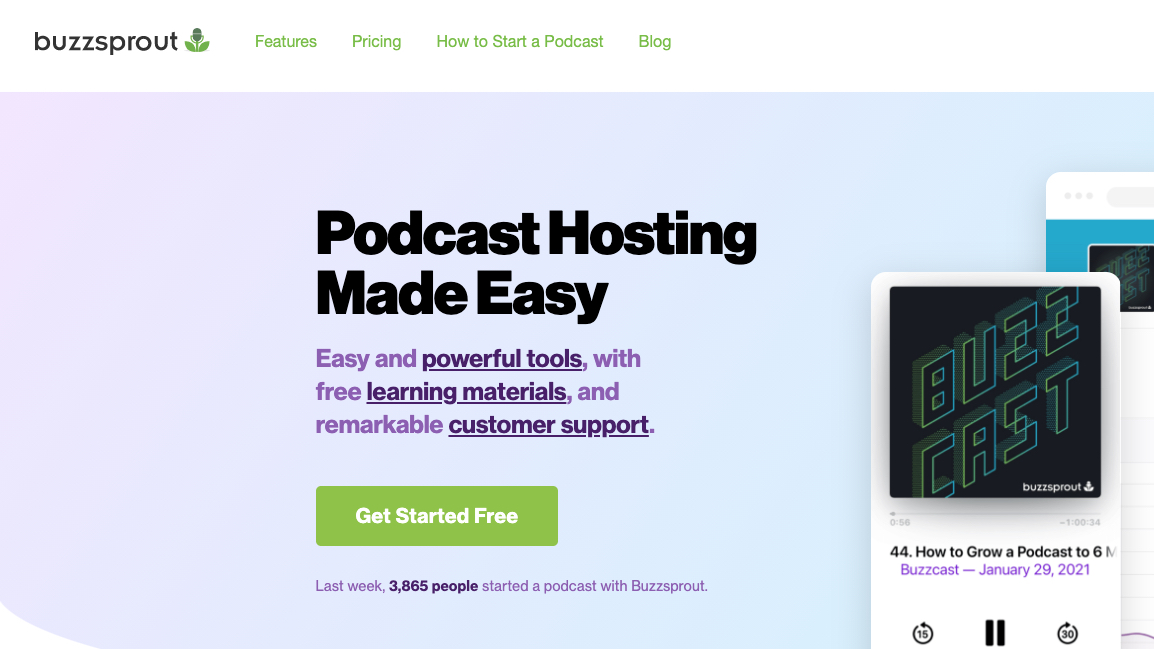
1. Buzzsprout
Our expert review:
Specifications
Reasons to buy
Buzzsprout is possibly the best-known podcast host service on this list, and for good reason. It offers a scalable pricing setup that allows users of all levels to access the service, while the analytics on offer are among the best in class.
The ability to publish content in 128k means your listeners will benefit from the superior sound quality, and the overall workflow is simple enough that anyone can get to grips with it quickly and easily.
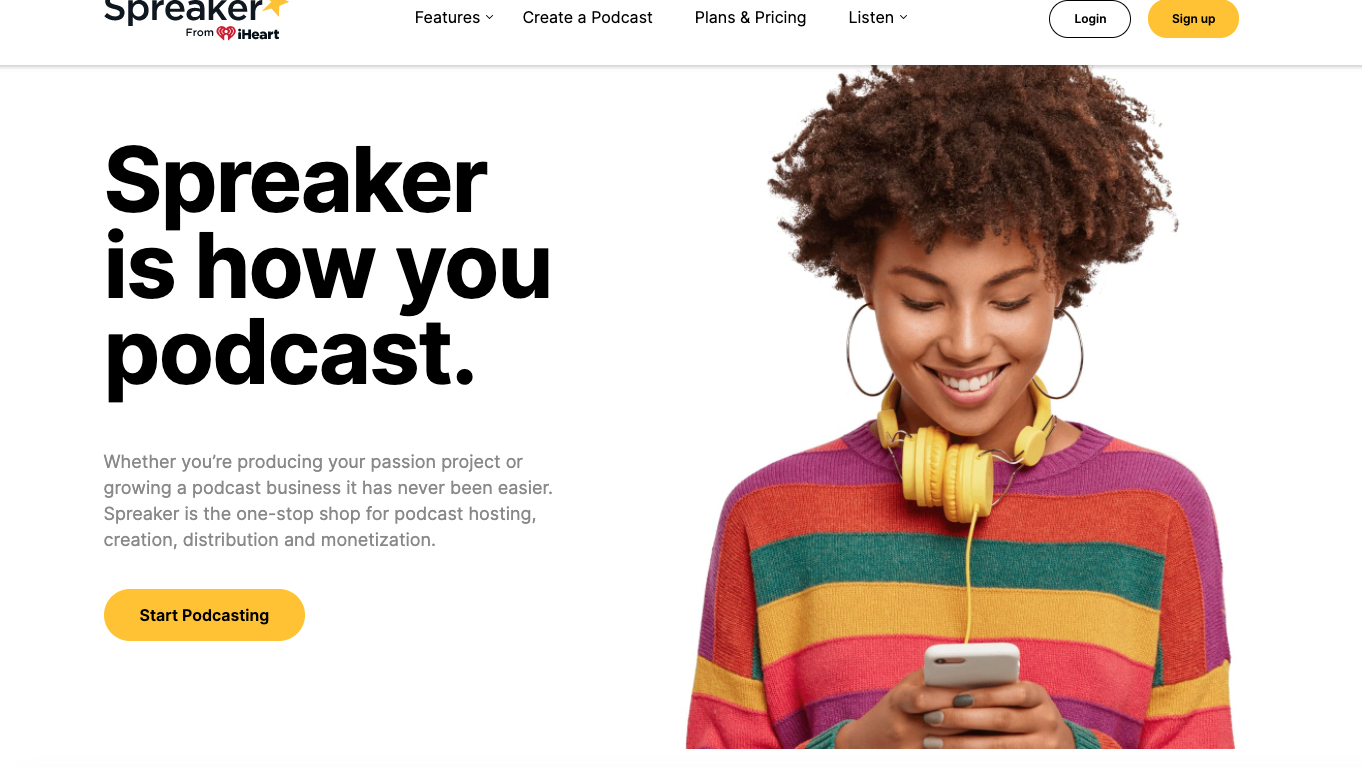
2. Spreaker
Our expert review:
Specifications
Reasons to buy
Spreaker organises itself slightly differently to other podcast hosts, in that its plans are based on storage instead of monthly limits. It has a range of plans, making it ideal for pods of any size, and its dynamic monetization feature means you could start making cash right away - if you’re of relative size to do that (more on how to make money from podcasting right here).
We also liked the ability to manage multiple different pod brands from a single account, which is great for professionals offering services to different clients.
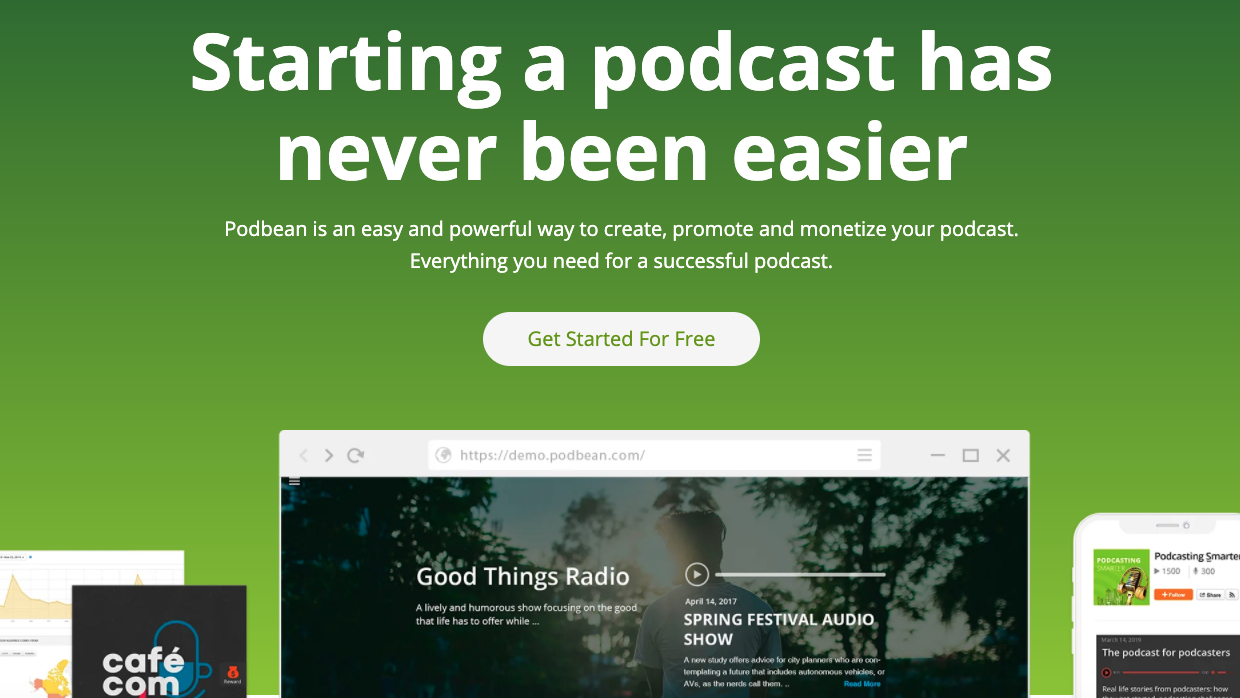
3. Podbean
Our expert review:
Specifications
Reasons to buy
If you’re new to podcasting, or aren’t as familiar with analytics, then a subscription to Podbean may be the answer for you. Podbean has one of the better stocked free offers, and its prices are reasonable considering all the extra bits you get, like dynamic ads and Patreon compatibility.
What we liked particularly with Podbean was its layout, which was simple and easy to understand and gave real, useful insights that will help you grow your channel and reach new listeners.
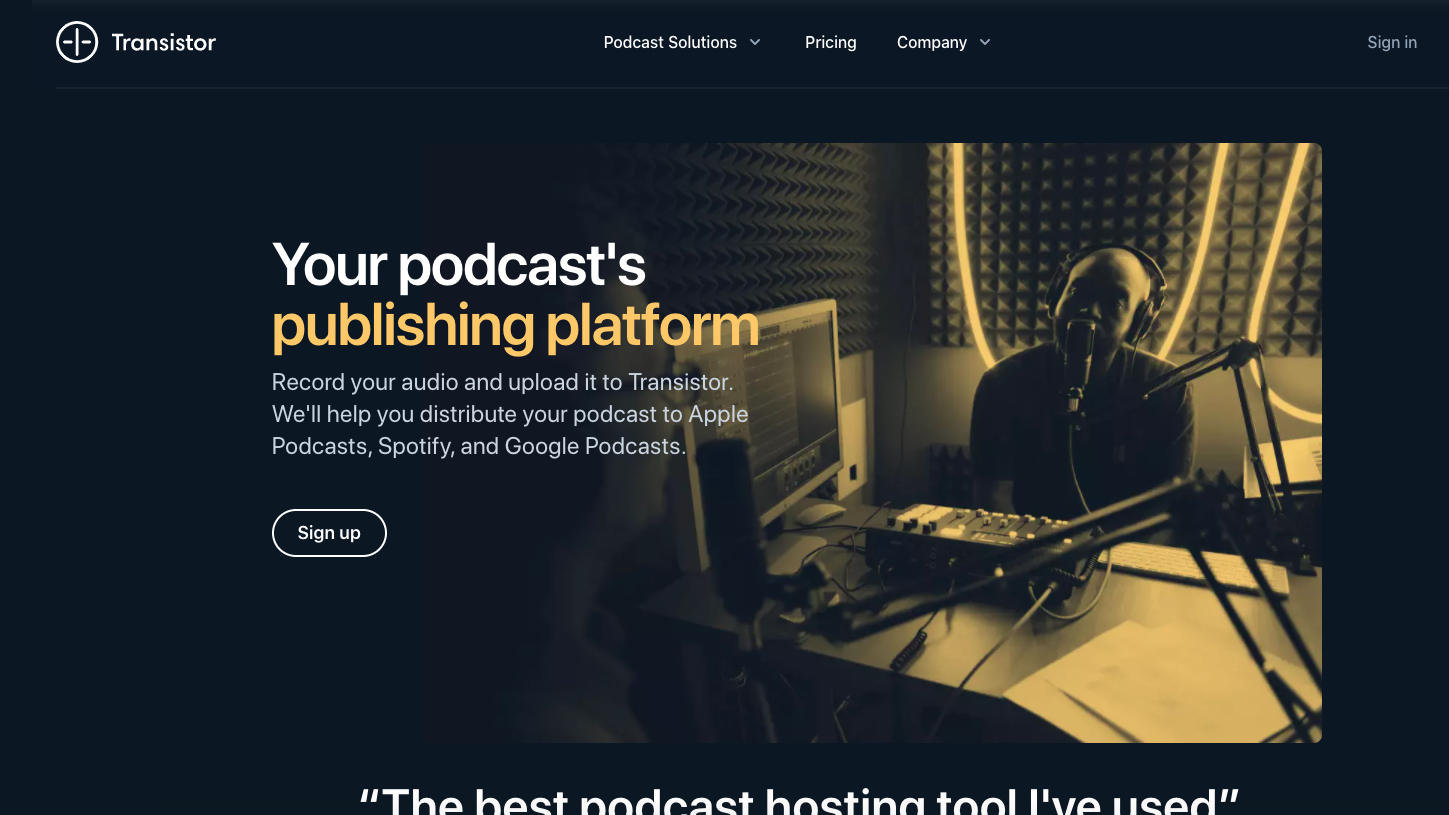
4. Transistor.fm
Our expert review:
Specifications
Reasons to buy
Often, particularly in an agency environment, a podcast producer could be managing production and distribution of multiple pods for different clients or hosts (in the other sense of the word). Transistor.fm is the ideal choice for these environments, with its different tiers all geared up towards allowing multiple users and unlimited podcasts.
In practice, this might mean you have one podcast for discussing film spoilers, and a completely differently branded pod discussing sports news. Transistor.fm gives you the platform to manage everything from one place.
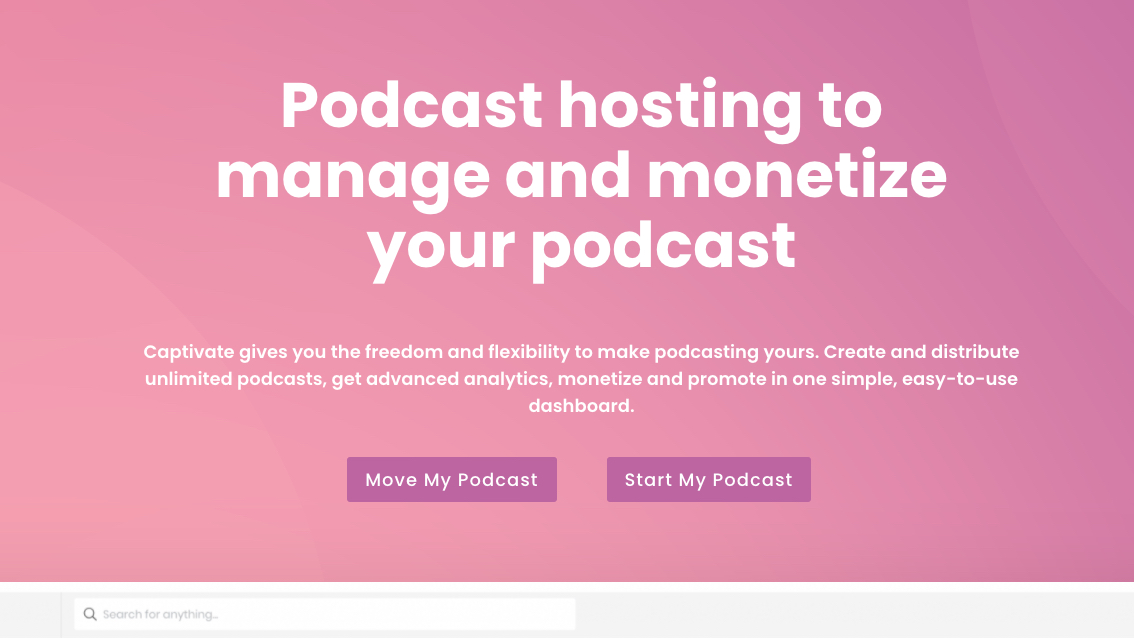
5. Captivate
Our expert review:
Specifications
Reasons to buy
Captivate is slightly different to the other host platforms on the list because it comes with a bunch of stuff you’d normally pay for included. Things like unlimited numbers of podcasts, unlimited team members and lead generation tools are normally premium but here they’re all bundled in.
We liked the way Captivate creates a free website for every pod, with tools on-page that allow you to generate email lists and even receive donations.
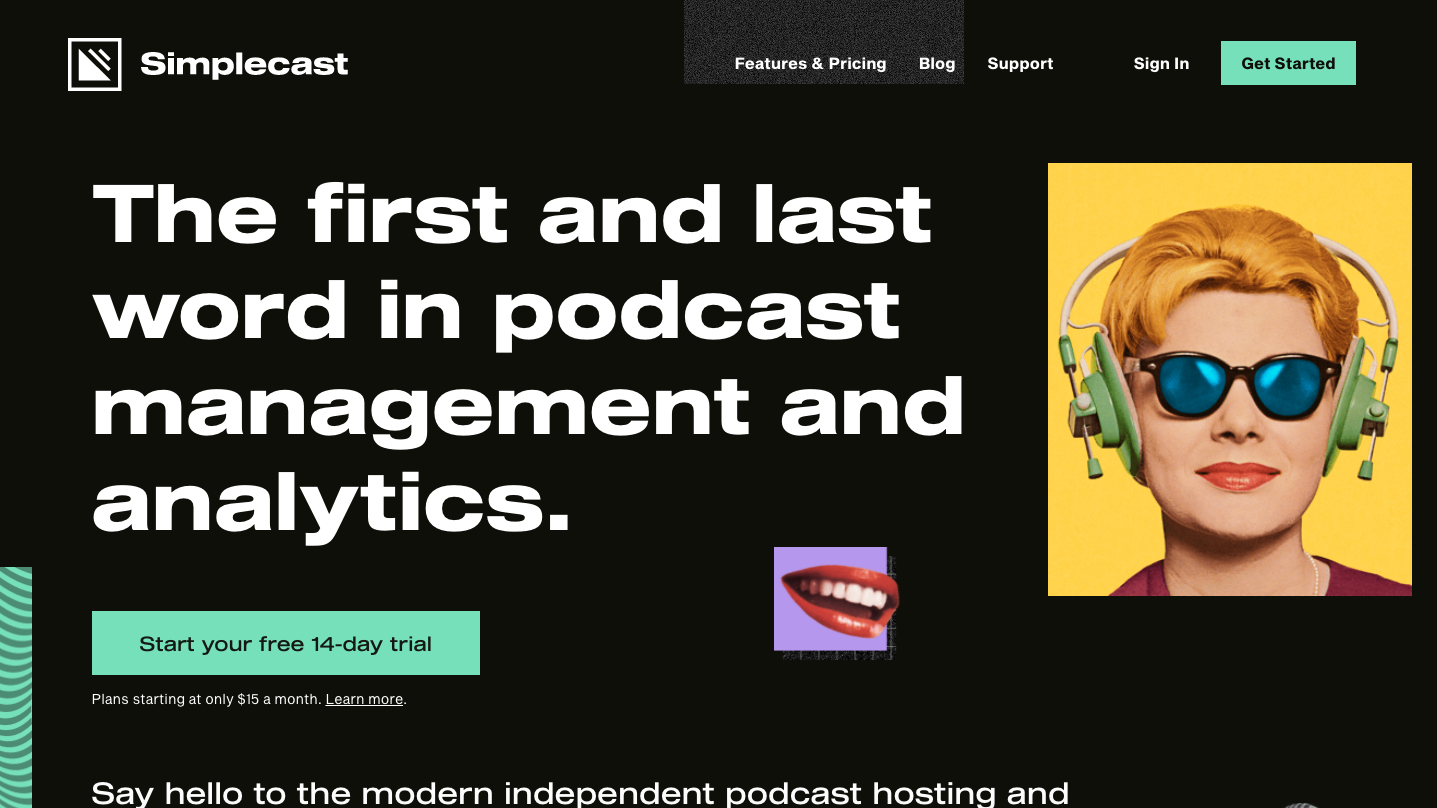
6. Simplecast
Our expert review:
Specifications
Reasons to buy
Simplecast is, as the name would suggest, geared towards podcast producers who don’t want to mess around with all the back-end stuff. Its signature feature is its one-click publishing to Spotify, Apple Music and the like, and the analytics are some of the most detailed - yet understandable - on offer.
It’s trusted by some truly massive brands - Nike, Twitter etc - but one particular feature stood out to us. Recast enables pod owners to snip small sections from their shows and instantly publish that section to social media. Superb for brand building and content empires where the pod is only part of the growth puzzle.
Best podcast hosts: Buying advice

It’s important when we’re talking about podcast hosting apps to point out the differences between podcast recording and podcast hosting. A recorder like Audacity or Adobe Audition allows you, essentially, to record and mix your audio - the different voices you’ll use, and any audio beds or sound effects - so you can arrange them and end up with a finished master file. Once you’ve got that file, and you’re ready for publishing, you’ll need a podcast host.
Podcast hosting platforms bridge that gap between your shiny audio file and a potential audience. In simple terms, you upload your file to your chosen platform, where it’s stored, and add in any artwork or metadata to help the listener find your pod. Once stored, podcasts can be shared using an RSS feed, which enables them to be listed on sites like Spotify or Google Play, ready for the listener to download or stream. It’s here that the common misconception around streaming services lies; Spotify doesn’t ‘host’ your file itself as such, instead it simply offers the portal through which people can access it. Storage of the file takes place at the host, which is why it’s important to choose the right podcast host for your needs.
How to choose the best podcast host for you
MusicRadar's got your back
There are plenty of options to choose from, as we’ve outlined in this guide, and each has its own benefits and drawbacks. Most will allow a specific amount of storage space depending on how much you pay. Some will offer useful extras like the ability to view the analytics of how many listens or downloads you’ve achieved that month. Others allow you to manage multiple podcasts through the same account, which is useful if you’re an agency offering podcasting as a service to your clients.
Most of the services we’ve highlighted in our guide to the best podcasting hosts have a free tier, meaning you may end up not paying anything for using their services however there will likely be limits over how many hours of audio you can store on these packages. The right podcast hosting package for you will depend on the scale at which you’re operating. If you’re publishing four pods a month and building a dedicated listenership, then paying for a premium tier service will be of significant benefit to you. It will allow you to store hours of content, which is useful for when listeners want to listen to previous episodes, and by using the analytics you’ll be able to identify the subject or content areas that are serving you best.
Find out more about how we test music gear and services at MusicRadar.
Related buyer's guide
- Tool up with the best podcast headphones
- Save big with the best budget USB microphones
- The best podcast recording software options - free and paid
Want all the hottest music and gear news, reviews, deals, features and more, direct to your inbox? Sign up here.
Chris Corfield is a journalist with over 12 years of experience writing for some of the music world's biggest brands including Orange Amplification, MusicRadar, Guitar World, Total Guitar and Dawsons Music. Chris loves getting nerdy about everything from guitar and bass gear, to synths, microphones, DJ gear and music production hardware.
